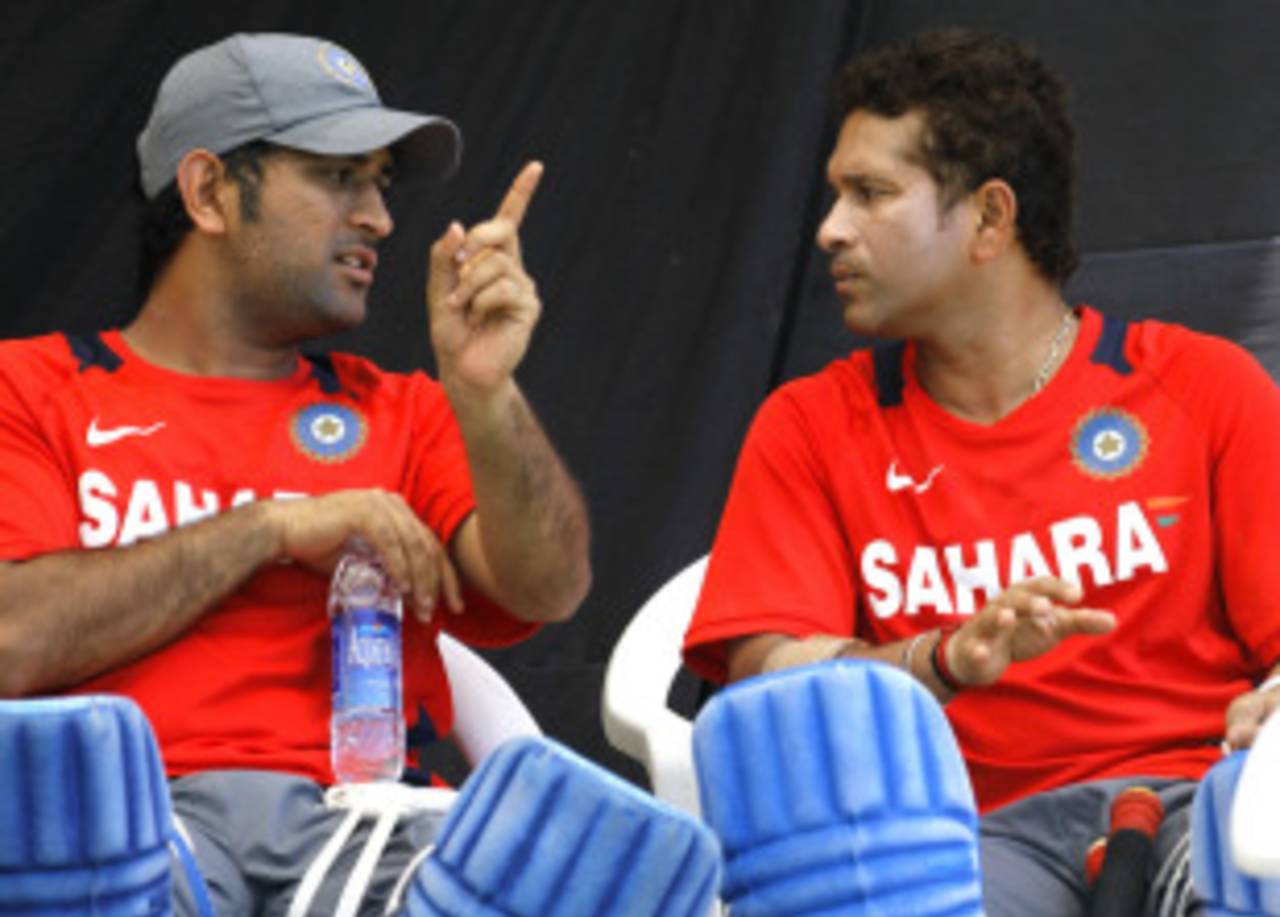Dhoni's among the great modern captains
India's captain has taken his side to the top without a great bowling attack, which makes his achievement more remarkable
Ian Chappell
Apr 10, 2011, 3:04 AM

Dhoni: up there with the Imrans and Taylors • Associated Press
India's emphatic victory in the World Cup has proved beyond doubt they are currently the best all-round cricket team. In the process, Mahendra Singh Dhoni's polished performance as skipper, where he pushed, prodded and cajoled his side into peaking at the right time, has shown he's not only the best leader in the game but also one of the finest of the last 30 years. His performance ranks him with the other top-class leaders of the period: Imran Khan, Mark Taylor and Arjuna Ranatunga.
Unlike their predecessors as the No. 1-ranked team, West Indies and Australia, India do not have a dominant bowling attack. Considering bowlers win matches, this makes Dhoni's captaincy performance even more meritorious. In that regard he's emulated Ranatunga in conjuring up a World Cup victory with a moderate attack. As there's no indication India are on the verge of unearthing a couple of world-class bowlers, and three of their best Test batsmen are closer to retirement than to the pinnacle of their careers, Dhoni has a serious challenge on his hands to keep India at the top of the rankings in the longer game. However, he can take comfort from the fact that none of the stronger teams look likely to surge past India in the race to be No. 1.
This is one of the reasons why the 2011 World Cup was such a fascinating tournament: all the teams were flawed. Consequently it was an extremely open World Cup. It's far more interesting when there are a number of good sides rather than one really strong one bullying a string of moderate teams. The previous three World Cup finals were dominated by Australia and the tournament badly needed the upsets and strong finale that 2011 provided.
In addition to having the best captain at World Cup 2011, India were also the most capable batting side against spinners. There's a worrying trend, which the World Cup exposed, of batsmen whose footwork is inadequate against spin bowling. This is even more of a concern when you consider that, of the three great spinners of recent times, Muttiah Muralitharan, Shane Warne and Anil Kumble, only the Sri Lankan was in attendance, and by the end of the
tournament he was virtually on one leg. There seems to be a train of thought amongst batsmen from some countries that it's less dangerous to employ all manner of zany, premeditated shots than it is to counter spin bowling with sharp footwork. This kind of warped thinking is either a product of poor coaching or lazy batting, or more likely a combination of both. I'm referring here to coaching received at a young age, not once the player reaches international level. It's too late to drastically change a player's footwork once he's old enough to be competing at the highest level.
The only major flaw in the 2011 World Cup - apart from the constant confusion over the DRS - was the length of time it took to decide a winner. Consequently it's welcome news that the 2015 tournament will be shorter. However, the automatic choice of all 10 Test-playing nations as the only qualifiers for 2015 is a short-sighted decision. The World Cup is a prestigious tournament and teams should only be competing on merit. Currently neither Bangladesh nor Zimbabwe deserve automatic entry, and even West Indies need to improve dramatically to escape the ignominy of slipping into that category. At least two of those teams should have to qualify by playing in a stringent promotion/demotion tournament with the stronger Associate countries.
Whilst this was a successful (and for the most part entertaining) World Cup, the ICC should always be looking for ways to improve the tournament. The introduction of a qualifying tournament, and the distribution of a paper by Indian coaches on how young batsmen can improve their footwork against spin bowling, would be a step in
the right direction.
Former Australia captain Ian Chappell is now a cricket commentator and columnist